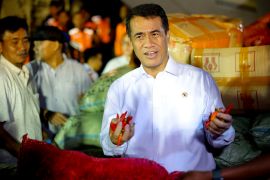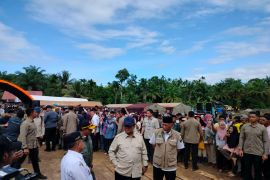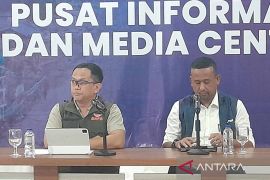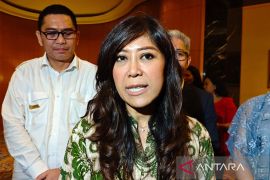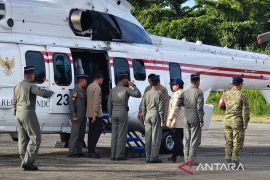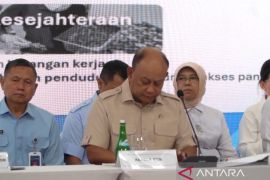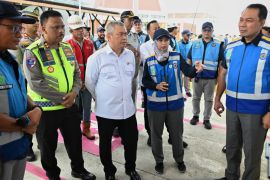"Adequate food production and consumption are important factors in developing productive human resources," the Agriculture Minister said in a written address read out by the Director General of Food Crops of the Ministry of Agriculture, Hasil Semibiring, in a seminar on National Statistics Day 2015 here on Tuesday.
The government is therefore focusing on the development of agriculture to achieve food self-sufficiency and national food resilience. It is also a necessary condition for securing national sovereignty.
He said that as a nation, Indonesia must be able to grow its food and meet the needs of its people in an independent and sovereign fashion.
Food sovereignty is a special capability of the nation to achieve three objectives: providing adequate food through domestic production, having an independent food policy and enhancing the welfare of and protecting farmers as the main protagonists in food development.
"The government is focusing on shoring up agricultural infrastructure and other supporting facilities," the minister said.
The government is expanding the supporting infrastructural facilities such as adequate irrigation networks by setting a target to repair irrigation of 2.6 billion hectares of agricultural land until the end of 2015.
"I think it should be done concertedly from upstream rivers. Besides, farmers water usage also needs to be properly managed," he said.
The government has also identified a number of problems in its efforts to increase the production of strategic commodities such as rice, maize, soybean and sugar. The problems included damaged irrigation networks, shortage of seeds, delayed supply of fertilizers, lack of agricultural machine tools and shortage of agricultural officials.
Till date, Indonesia has a total of 347 rice varieties but the agriculture ministry will develop certain varieties that are more superior.
Apart from the availability of agricultural infrastructure such adequate irrigation, certain other conditions have to be met to ensure adequate food stocks. Enough food should be grown based on local resources to cater to the countrys need, as mandated in the food sovereignty concept.
The other conditions included the availability of adequate land supported by renewable agricultural technology, production facilities such as capital, fertilizers, pesticides, and market guarantee such as price.
Besides, efforts in the form of consistent protection, assistance and mitigation measures to deal with the fallout of climate change are also needed.
The government is also committed to making breakthroughs through special fast programs (Upsus).
Through the Upsus, the government is developing irrigation and tertiary networks on 2.6 million hectares of land.
Supporting activities included optimizing 1.03 million hectares of land and applying cultivation technology in case of integrated rice plantation.
The government is also providing pre- and post harvest facilities. It has handed over 49,000 units of agricultural machines to farmers.(*)
Editor: Heru Purwanto
Copyright © ANTARA 2015
